Transportation
New York’s major capital plans for commuter rail, subways and buses
Here’s a look at the biggest projects being taken on by the Metropolitan Transportation Authority, Port Authority of New York and New Jersey, New Jersey Transit and Amtrak.

A rendering of the Nordstrand Avenue station on the proposed Interborough Express connecting Brooklyn and Queens. Metropolitan Transportation Authority
New York’s transit network has long been in need of major improvements, and today there’s a slate of multibillion-dollar projects in the works that would deliver significant upgrades and expansions to the rail and bus systems. The Metropolitan Transportation Authority, which is banking on an influx of funds from congestion pricing, is expected to include some of these megaprojects in its next five-year capital plan coming out in the fall, while the Port Authority of New York and New Jersey, New Jersey Transit and Amtrak all have major infrastructure projects on their to-do lists as well. Here’s a rundown of some of the biggest transit projects in the downstate region.
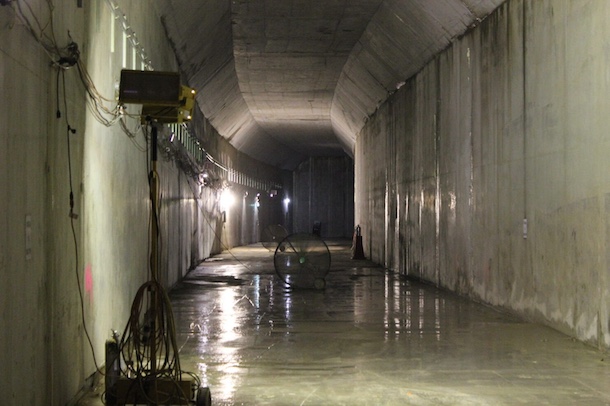
Gateway Program
Cost: $16.04 billion
Completion date: 2035
Status: The project entered the engineering phase last summer, construction began last fall and a full funding agreement is expected this year. Tunnel digging could begin next year.
Description: The Port Authority, New Jersey Transit and Amtrak are partnering on the project, which will feature a new, two-track commuter rail tunnel under the Hudson River between New Jersey and Manhattan. It also includes the rehabilitation of an existing two-track tunnel damaged during Superstorm Sandy and concrete casing work underground connecting to Penn Station in Manhattan.
Impact: Around 450 Amtrak and NJ Transit trains use the existing tunnel daily. The new tunnel will add capacity and improve reliability for a commuter rail link that’s critical for the entire Northeast region.
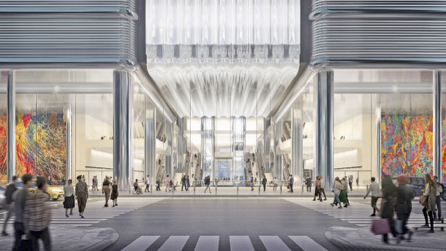
Midtown Bus Terminal
Cost: $10 billion
Completion date: 2032
Status: In December, the Port Authority board approved a 2024 budget that funds ongoing planning for a new Midtown Bus Terminal. In March, Gov. Kathy Hochul, New York City Mayor Eric Adams and the Port Authority announced an agreement to fund the project.
Description: The project will replace the existing terminal, which is 73 years old, with a new 2.1-million-square-foot terminal with new ramps connecting directly to the Lincoln Tunnel. It would permanently close part of 41st Street between Eighth and Ninth avenues. A temporary terminal and new ramps would be completed in 2028 and the new terminal would be completed in 2032.
Impact: The project aims to meet rising bus ridership with added capacity, move intercity bus service from city streets into the terminal and improve pedestrian accessibility.
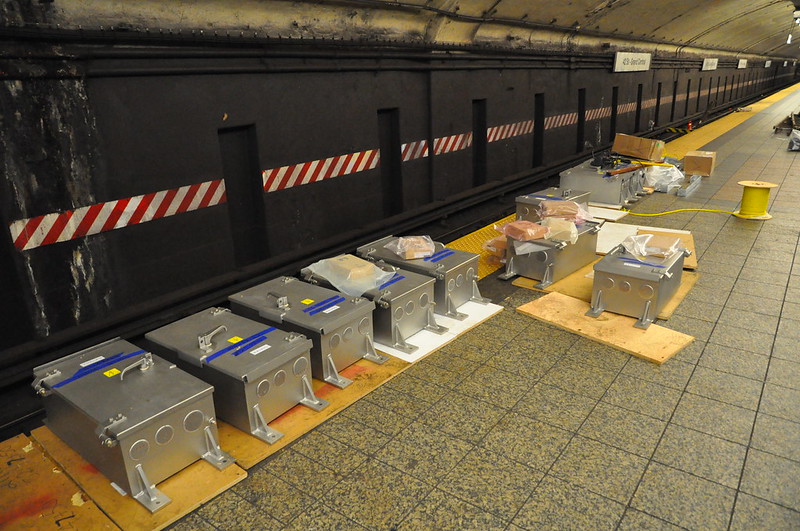
Subway signal modernization
Cost: $9.7 billion
Completion date: TBD
Status: The MTA has already been implementing communication-based train control on some lines, but further upgrades with the modern signaling technology hinge on securing funds from congestion pricing.
Description: The MTA aims to eventually have the tech, which relies on wireless connections to sensors on tracks and in cars to more precisely track train locations, on all subway lines, replacing a signaling system that’s more than a century old.
Impact: Modern signals allow trains to run more closely together, allowing for increased capacity and more efficient operation. Other advantages include using the technology for automated train supervision.
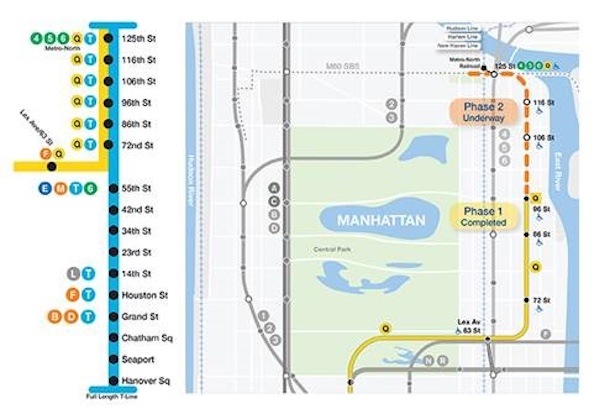
Second Avenue Subway Phase 2
Cost: $7.7 billion
Completion date: Between 2030 and 2039
Status: The MTA is advancing preliminary design and engineering, and procurement is underway. The first contract was awarded early this year.
Description: The MTA plans to extend the Second Avenue subway’s Q line from 96th Street up to 125th Street in Harlem, with three new stations in East Harlem. Gov. Kathy Hochul and MTA officials have suggested extending the line on a crosstown route along 125th Street as an option as well.
Impact: The MTA estimates that after the second phase is completed that the first two extensions will result in 300,000 daily riders. The second phase extension will reduce commute times and link with major rail and bus lines.
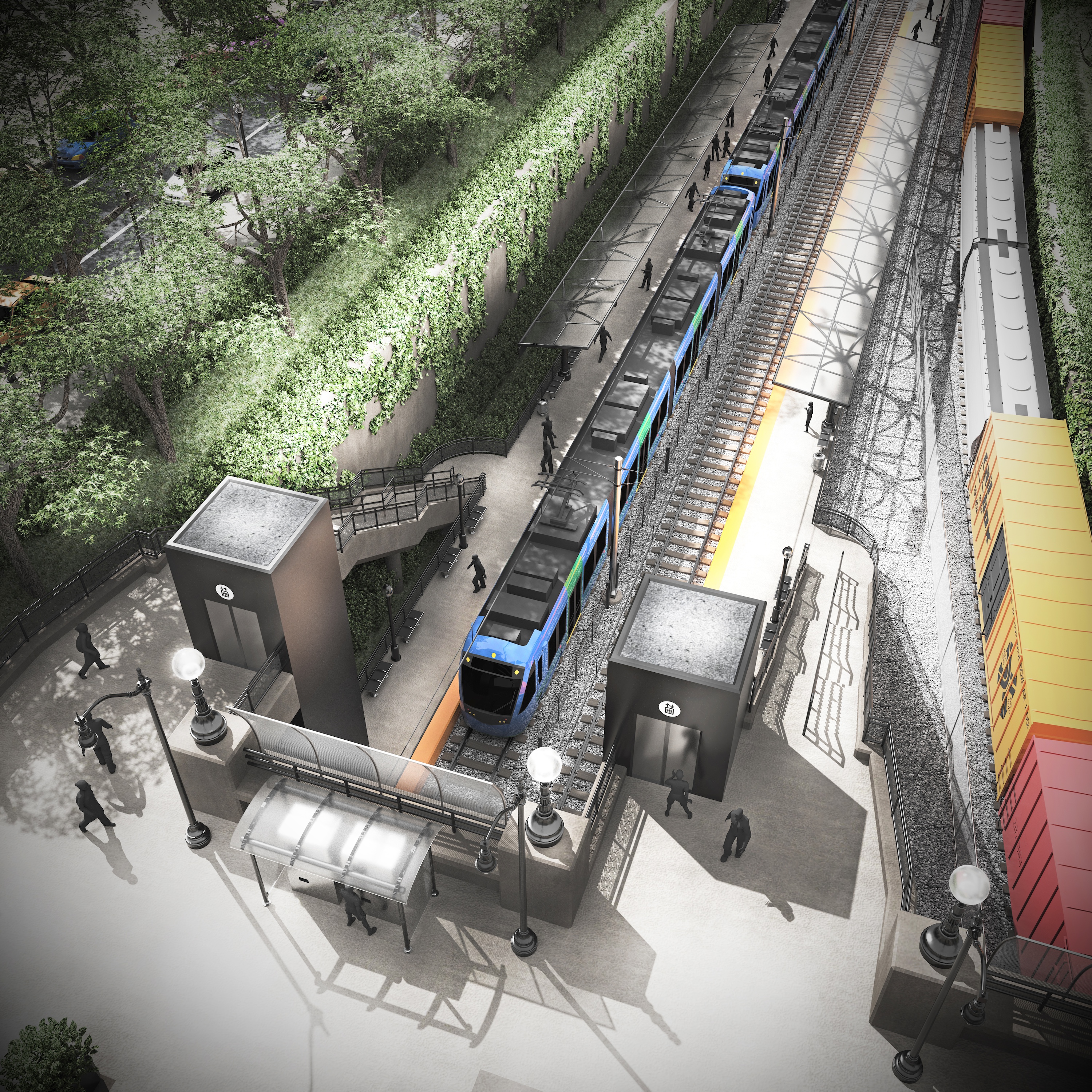
Interborough Express
Cost: $5.5 billion
Completion date: TBD
Status: The Interborough Express is still in the preliminary stages. In 2022, Gov. Kathy Hochul unveiled the proposed light rail line connecting Brooklyn and Queens. In January, she announced that the MTA would begin engineering planning. The MTA has expressed optimism that it will advance.
Description: The Interborough Express would use the existing rail right-of-way of the Long Island Rail Road-owned Bay Ridge Branch freight rail line to connect Bay Ridge, Brooklyn, to Jackson Heights, Queens.
Impact: The MTA says the route would increase transit access to underserved areas, reduce commuter travel times between the boroughs with a 40-minute ride end-to-end and reach a daily weekday ridership of 115,000.
.jpg)
Penn Station Access
Cost: $3.18 billion
Completion date: 2027
Status: The groundbreaking was in December 2022.
Description: The MTA is extending the Metro-North Railroad’s New Haven line to Penn Station and adding four new stations. Other work includes bridge rehabilitation and signal modernization.
Impact: The MTA says the project will reduce travel times from the Bronx to Manhattan by as much as 50 minutes. East Bronx residents will be able to use stations at Hunts Point, Morris Park, Co-op City, and Parkchester/Van Nest to catch a ride directly to Penn Station.
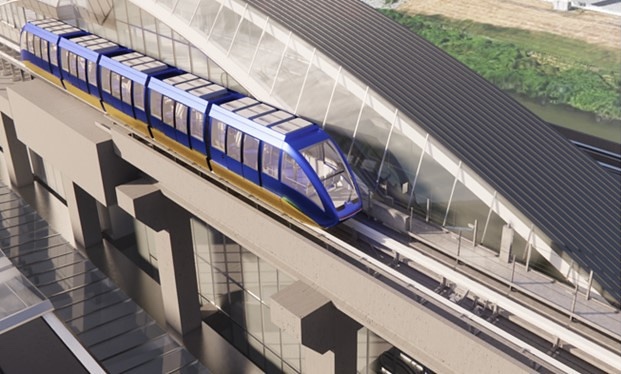
Newark AirTrain Replacement
Cost: More than $2.05 billion
Completion date: 2029
Status: In December, the Port Authority selected Doppelmayr to complete design and construction work on the project.
Description: The Port Authority is replacing the aging AirTrain monorail at Newark Liberty International Airport with a modern 2.5-mile “automated people mover train system.” This is part of a multibillion-dollar overhaul at Newark.
Impact: The existing AirTrain carried an average of 33,000 passengers daily before the COVID-19 pandemic. The Port Authority says the new system will require less maintenance, increase capacity and improve reliability.

